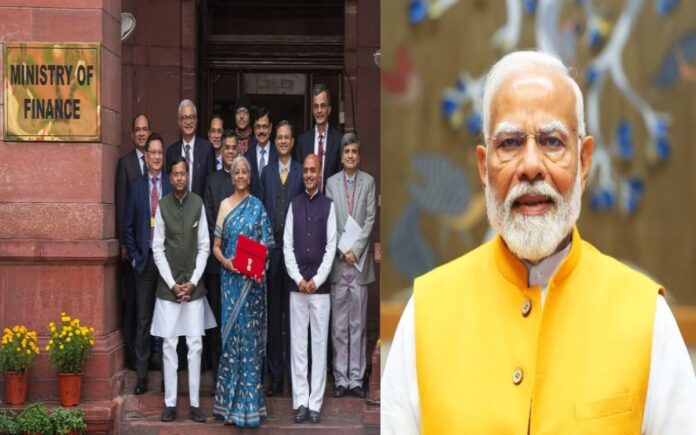New Delhi: India is set to revamp more than 200 state-run firms to enhance profitability, marking a shift from Prime Minister Narendra Modi’s ambitious but faltering privatisation agenda, government sources revealed.
The programme, aimed at privatising a substantial portion of India’s cumbersome $600 billion state sector, announced in 2021, had slowed prior to the general election in April-May. Now, facing increased resistance after Modi’s parliamentary majority loss, the government must rely on coalition allies.
Expected to be unveiled during the annual budget on July 23 by Finance Minister Nirmala Sitharaman, the new strategy includes selling extensive tracts of underutilised company-owned land and monetising other assets. Two officials familiar with the policy noted that some details are still being fine-tuned.
The objective is to generate $24 billion in the current fiscal year (April-March) and reinvest the proceeds into these companies. The plan also sets five-year performance and production targets instead of short-term goals.
These comprehensive plans for overhauling state firms have not been previously disclosed. The officials, speaking on condition of anonymity due to the confidential nature of the discussions, indicated that the finance ministry did not comment on the matter.
“The government is shifting focus from indiscriminate asset sales to enhancing intrinsic value of state-owned companies,” remarked one official.
In addition to these measures, the government intends to introduce succession planning in majority-owned companies. It also proposes to train 230,000 managers across various firms to prepare them for senior roles, currently filled by government appointments.
Further plans include professional recruitment to company boards and incentives for high performance starting from the fiscal year 2025/26. The expectation is that increased autonomy will boost competitiveness.
The 2021 announcement to privatise most state-run firms encompassed two banks, an insurance company, and entities in steel, energy, and pharmaceutical sectors. However, progress has been limited, with only the debt-ridden Air India sale to Tata Group completed, and plans for others rolled back. Additionally, a mere 3.5% stake in LIC has been sold along with shares in a few other companies.
Hardeep Puri, India’s oil minister, recently confirmed that the proposal to sell Bharat Petroleum Corp is off the table due to its profitability matching its proposed sale price annually.
According to Sunil Sinha, chief economist at India Ratings, privatisation efforts, often criticized as selling assets below market value, face heightened political scrutiny post-Modi’s reduced majority.
Also Read | Imran Khan’s PTI Gains Extra Parliament Seats in Landmark Supreme Court Decision
“This (privatisation) can actually snowball into a political slugfest…recouping it may become very difficult and they may have to pay a political price for it.” Sinha cautioned.
Despite challenges in privatisation and stake sales, the overall market valuation of state-owned firms has more than doubled in the past year on hopes of sectoral reforms.
The BSE PSU index, which tracks state-owned companies, has surged over 100% in the last year, outpacing the benchmark BSE Index rise of 22%.
Also Read | President Lai Grateful for Micron’s Trust in Taiwan’s Tech Innovation
Sanjeev Prasad of Kotak Institutional Equities noted, “We find the valuations of many PSU stocks to be quite bizarre, when compared with their fundamentals.”
Nevertheless, government officials interpret the market’s response as a vote of investor confidence, anticipating that reforms will translate into higher profits and increased returns for the state.
State firms are projected to pay significantly higher dividends, expected to surpass earlier estimates of 480 billion rupees ($5.8 billion) in 2024/25, according to a second government source.
Analysts caution that India risks forfeiting the opportunity to capitalize on buoyant state company valuations. CareEdge Ratings suggested that by selling minority stakes while retaining a 51% stake, the government could raise about 11.5 trillion rupees ($137.75 billion) at current market capitalisation.
Rajani Sinha, chief economist at CareEdge Ratings, highlighted, “The conclusion of the election season, combined with stock market hovering around all-time highs, provides a perfect opportunity to advance some significant divestment initiatives.”



